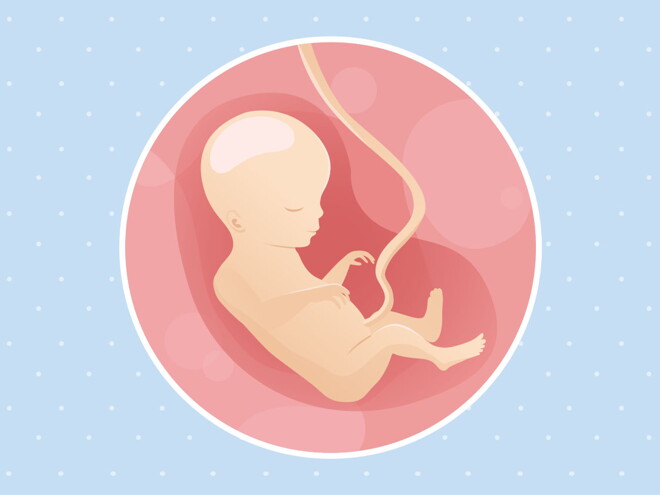
18-weeks pregnant: baby development and diet tips
Lots of leaps and bounds happening in week 18, from nerve cells multiplying to the beginnings of fingerprints. Read more to learn what baby looks like at 18 weeks of pregnancy.
Baby development
In just one of pregnancy’s incredible facts, by this week your baby has produced most of the billions of brain cells that they will have at birth! Muscles are getting stronger, too, and their movements more vigorous. If you haven’t felt your baby dancing around yet, you should soon. It all depends on the temperament of your baby. Other developments are taking place with their hands - their fingers are developing little nails and fingerprints are starting to emerge.
Your body
It is quite unbelievable to stroke your belly and know that there is a person growing in there. And when you imagine interacting with this little person – how they will smile, what they will look like – it is quite incredible, isn’t it? Perhaps you know your child’s sex. Or maybe you are waiting until their birth to find out. Either way, it’s almost time for the "anatomic” ultrasound scan. This time, your doctor will be able to verify that your child is developing healthily, but also whether it is a girl or a boy. Don’t be disappointed if you would like to know but nothing can be seen yet. Your child has to be lying “correctly” or even the most practised ultrasound technician’s eye cannot determine his or her sex.
Nutrition
Unfortunately, pregnancy can interfere with normal bowel movements. We can’t stress it enough: a diet rich in fibre, fluid, and moderate activity can help. Fresh whole vegetables and fruits, whole-grains, nuts, and legumes can work wonders. Drink enough (2 litres of fluid per day) to hydrate and facilitate “transit”. And try starting your day with a glass of water or fresh orange or grapefruit juice with the pulp left in. Soak prunes overnight, if you prefer to soften them, and enjoy for breakfast with yogurt – they are, safe natural laxatives and can help with your bowel function. And, continue the walking or other activity you have been doing throughout your pregnancy. Don’t strain or push during bowel movements. Speak to your doctor if you are feeling like you are constipated.
Tips
You’ve been told to consume lots of calcium-rich foods to strengthen your bones and those of your baby but what do you do in case of lactose intolerance? You just have to be more creative to get your needs met. Some people with lactose intolerance can still continue to eat yogurt with live cultures. You may choose milk with reduced lactose, or substitute soy products for milk products. Besides dairy products, some foods have added calcium, such as calcium-fortified juices, cereals, and soy products; check the food package to be sure. Almonds, dark green and leafy vegetables (including broccoli, okra, kale, and collards), and fish canned with bones (eggs salmon and sardines) are examples of non-dairy foods that contain calcium. Finally, choose a prenatal vitamin that includes at least 0.4 mg of folic acid, iron, and calcium. Speak to your doctor if you are concerned about whether you getting enough calcium is in your diet.
References
Health Link BC. Pregnancy: Hemorrhoids and Constipation. Pregnancy: Hemorrhoids and Constipation | HealthLink BC Accessed September 2021.
Health Link BC. Lactose Intolerance. Lactose Intolerance | HealthLink BC Accessed September 2021.




















